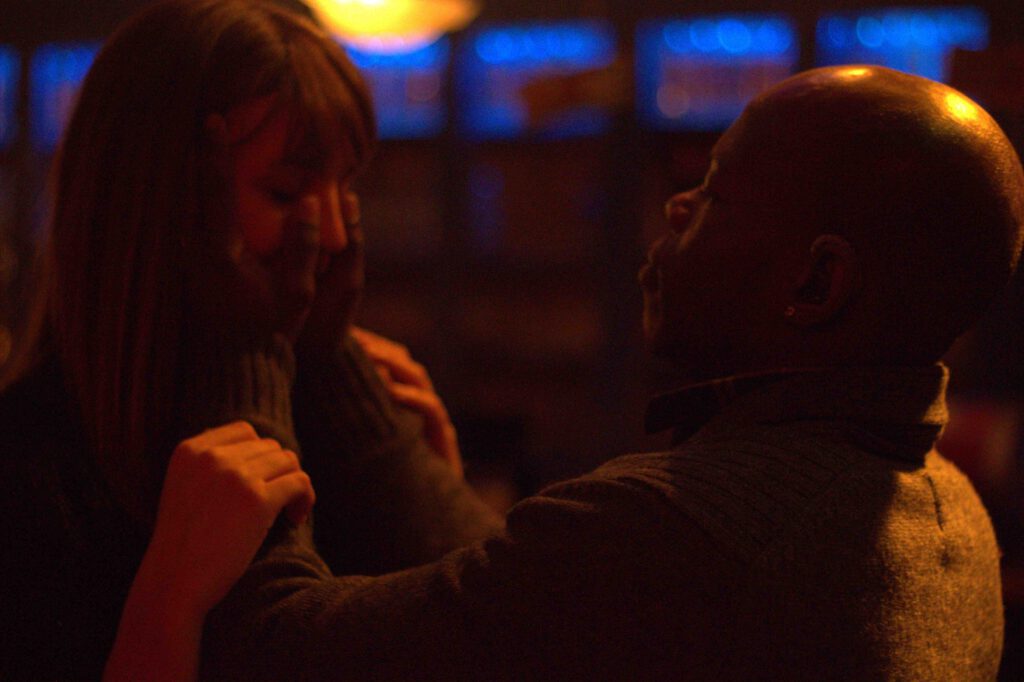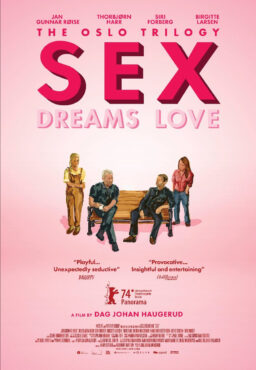CANNES, FRANCE—Navigating alterna-Cannes
is no simple proposition. Torn between the opening-night films of
Directors’ Fortnight and Critics’ Week, I opted for the latter, using
two shaky premises. First, because Critics’ Week was taking a risk by
kicking off its program with an unknown 168-minute feature, the movie
had to be something special. Second, because of the running time,
relatively few people would bother going. That meant the prospect of
being on the vanguard should the picture turn out to be a secret
masterpiece. Plus I’d heard good things about the director’s previous
film, “Donoma.”
Djinn Carrenard’s “FLA” neither tried my patience
nor completely rewarded it. The title stands for “faire l’amour” (“to
make love”)—a bit of a tease, since the film consists almost exclusively
of talking. A far-removed, mood-swing-prone cousin of “The Mother and
the Whore,” it’s a film of free-wheeling digressions and endless
arguments. It centers on two lovers in France: a flight attendant, Laure (Laurette
Lalande), and an aspiring rap musician, Oussmane (actual rapper Azu),
who’s just entered into a recording deal but at the same time suffers a
hearing loss. About a third of the way through this nearly three-hour
film, Laure’s sister, Kahina (Maha), a convict who has a child in foster
care, returns home. Her sudden presence in the house threatens to cause
Laure and Oussmane’s relationship to combust.
All of this
makes the movie sound far more straightforward than it is, but in fact
it’s built out of long chunks of conversations, with little apparent
narrative shape. It even opens abruptly, sans credits, as Oussmane
discusses his contract before visiting Laure in the hospital, where
she’s about to procure an abortion. Individual scenes are assembled
oddly, alternating standard shots with masked ones that create a
contact-sheet effect. Although the film could clearly stand to be edited
down to a less unwieldy running time, there’s no shortage of cutting;
the rapid-fire montage, and Carrenard’s habit of eliding expected
payoffs, gives the film a bouncy, Godardian vibe. A smeary, messy
palette—the credits suggest the film was shot with several different
cameras—churns through varied levels of color saturation. (In a sense,
“FLA” is more of a true impressionist project than another Cannes title,
Mike
Leigh’s “Mr. Turner“—a biopic that finds Leigh less interested in the techniques that
made J.M.W. Turner a revolutionary painter than in the type of bullish
personality that would allow a man to depart from accepted standards without fear or
shame.)
A late revelation clarifies Oussmane’s past while at the
same time abruptly changing the focus of the film. “FLA” doesn’t hang
together—the same arguments seem to happen over and over, the tangents
(Kahina and Oussmane take a trip to Paris) feel like garden-variety
meandering, and there’s the general sense that Carrenard, who’s
reportedly self-taught as a filmmaker, is making up both his narrative
and his shooting style as he goes along. It’s sort of movie in which you
can’t tell if the director is a hopeless amateur or a gonzo original.
But although that can be exasperating, it’s just as often energizing,
and occasionally—as in a lengthy, vividly shot proposal scene—it can be
thrilling.
Down the street from Critics’ Week, the Fortnight
program honored French New Wave lion Alain Resnais, who died in March,
with a screening of his English-language “Providence” (1977), probably
the only movie in which John Gielgud is allowed to expound at length
about defecation. A wild metafiction in which Dirk Bogarde puts David
Warner on trial for killing a werewolf, Ellen Burstyn has a revenge
“affair” with the accused (an affair that somehow never seems to involve
sleeping with him), and Elaine Stritch turns up as Bogarde’s dying
mother, it’s confounding and disarming even by Resnais standards. Thanks
to a phantom football star who appears throughout the film, the
festival has its first official trend: imaginary soccer.












